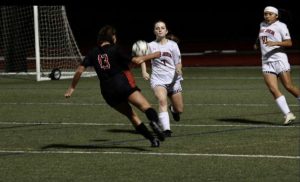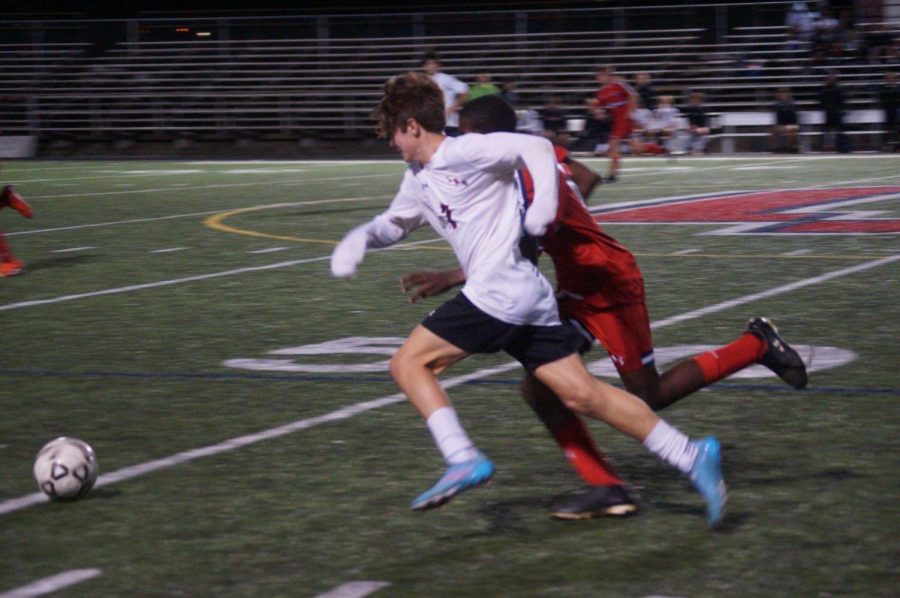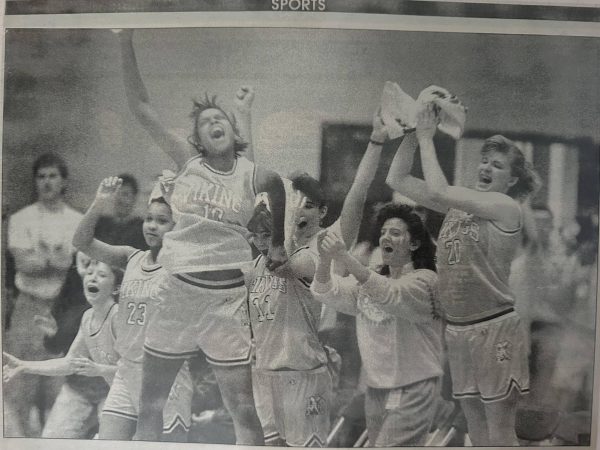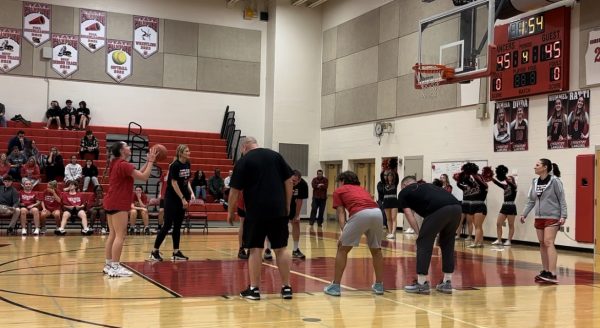Freshmen on varsity teams: A destructive decision?
Ben Griffin sprints down the field against Governor Thomas Johnson High School.
October 17, 2022
Sports are an essential part of almost anyone’s high school career, whether you are a player on the team or spending Friday nights in the stands. While most freshmen compete on JV sports teams, a few dedicated Linganore freshmen found themselves on varsity sports teams this school year. Although securing a spot on a varsity team at such a young age is a great achievement, there is some cost involved.
According to the National Library of Medicine, being a varsity athlete can lead to unwanted effects. In a recent study examining the relationship between well-being and sports, it was found that 14 hours per week of participation in sports led to the definite decline of well-being in athletes.
One Linganore freshman, Anelise Herdman, shared her grueling schedule as a varsity cheerleader.
“I have practice everyday except Wednesday, and then I have a Saturday morning practice, and we cheer at Friday night games,” said Herdman.
This schedule does not leave much free time for homework, spending time with friends or relaxing. This vigorous practice regimen could potentially have a negative impact on not only academic performance but the mental health of student athletes.
Public School Review‘s Grace Chen writes, “As teens engage in competitive events and team sports, their exposure to peer-pressure and anxiety may increase with the need to win. Furthermore, athletes can experience extreme physical pressures when too much is demanded from them, resulting in injuries from overuse or other physical ailments.”
One may wonder if these cons of competing in high school athletics are exacerbated for freshmen athletes.

Mckenna Nicholls is the only freshman on the girls’ varsity soccer team. Most surely, this feat is to be commended, but is her place on the team worth it?
In order to continue being a student athlete, a student must maintain a high level of performance not only in games but academics as well. Students must keep a GPA of at least 2.0 and cannot have any F’s on their report cards.
“I am pretty bad at time-management, so [maintaining my GPA] is kind of hard for me,” said Nicholls.
Freshmen athletes are not only new to the rigors of high school academics, they are entering a new social sphere as well. An athlete’s age can also play a factor in how that player is treated on their team. This is true for both Nicholls and boys’ varsity soccer player Ben Griffin.
Sometimes freshmen varsity athletes may feel mistreated. Griffin admits his teammates “made [him] clean their shoes” one day. Although he said it was funny, such behaviors have the potential to impact student morale and mental health.
It is also important to note that hazing or any behaviors like it go against the Frederick County Public Schools Intimidation Policy.
For some freshmen athletes competing at the varsity level, it can be helpful to have a comrade-in-arms to share the unique burdens they carry.
“I wish I had one other person my age on the team,” said Nicholls. “We could help each other when trying [to get] to know everyone. Everyone is so much older than you; it can be hard to connect with them. Having someone else my age would feel like a relief,” said Nicholls.
Everyone is so much older than you; it can be hard to connect with them. Having someone else my age would feel like a relief,
— Mckenna Nicholls














